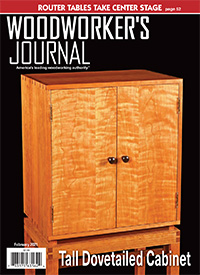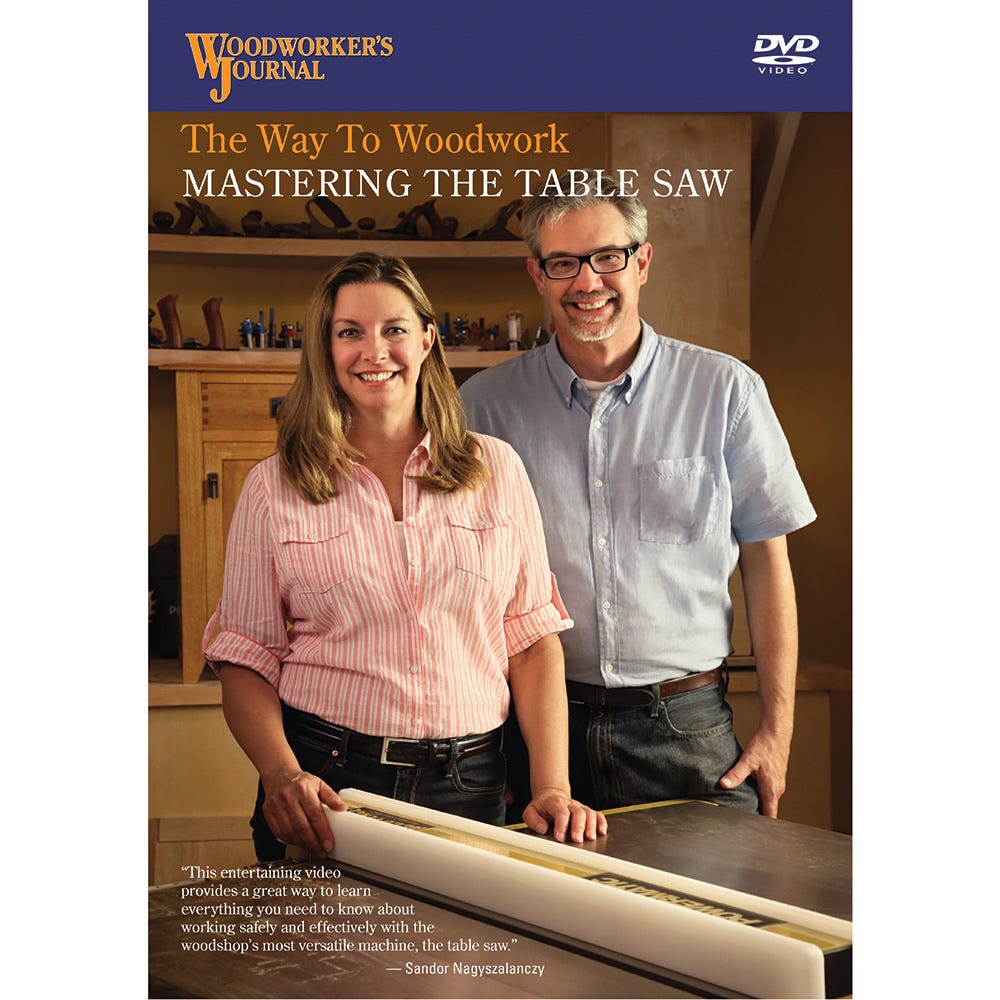
If 2021 is your year to kick a budding woodworking hobby into higher gear, several articles in our new issue will help grow your skills and knowledge base. But, for those of us with lots of shop years under our belts, the February issue also offers several more challenging projects.
Cherry Wine Cabinet: Our senior editor clocks some hours on his Leigh D4R Pro Dovetail Jig to produce a Krenov-inspired chest-on-legs that’s ideal for storing your favorite wines.
Simple Bookcase: Measuring and cutting parts, then assembling them with a variety of joinery, isn’t just for entry-level woodworking projects — these are commonplace tasks for everything we build. This straightforward but attractive bookcase will help you put those bread-and-butter woodworking skills through their paces.
Timber and Epoxy Table: If you haven’t yet tried your hand at the “river pour” table craze, our publisher submerges a piece of rough-around-the-edges maple into a bath of Timber Cast Deep-pour Epoxy Resin and shares his experiences. Lessons were learned!
Traditional Spoon Carving: An axe and a couple of carving knives are all the tools you’ll need to fashion hand-made wooden spoons in the Swedish sloyd tradition. A Minneapolis-area carving expert shows us the ropes.
Woodturning: Texturizing can take your faceplate or spindle turnings from dull to dazzling. Our expert reviews these techniques and offers words of wisdom about each.
Tool Tutorial: A.J. Hamler will help you navigate the important features when choosing or building a router table. It’s an accessory that can maximize a router’s full potential.
Tool Preview: Take a sneak peek at SKIL’s brand new mid-size router, outfitted with a digital display and both fixed and plunge bases.
Hardworking Woods: Much revered, particularly in the Arts & Crafts furniture world, white oak is heavy and tough as nails but surprisingly easy to work. In quartersawn form, it’s medullary rays can be dazzling.
Finishing Corner: Expert finisher Tim Inman and our staff answer your often-asked finishing questions.
Getting Started: This new department for newbies will examine woodworking fundamentals. We kick off the discussion with an overview of why you need to make and follow a material list.
Buying Lumber: Knowing how to estimate lumber volumetrically isn’t difficult, once you understand a couple of straightforward formulas. Using them correctly can save you from both miscalculations and overspending at the lumberyard.






